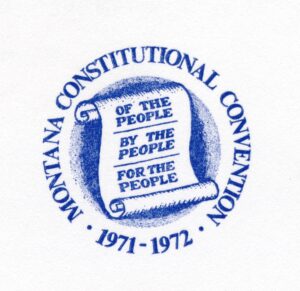Get A Free Consultation
(406) 315-3737
Montana Constitution: 50 Year Anniversary
Enhanced Protections for Individual Dignity and Privacy
Montana’s Constitution just celebrated its 50 year anniversary. The Montana Constitution, ratified on June 6, 1972, stands out among state constitutions for its robust protections of individual rights, particularly concerning our dignity and privacy rights. These provisions reflect a commitment to safeguarding personal freedoms beyond what is typically afforded under the U.S. Constitution.
Dignity Rights
Article II, Section 4 of the Montana Constitution states: “The dignity of the human being is inviolable. No person shall be denied the equal protection of the laws.” This explicit recognition of human dignity as an inviolable and fundamental right underscores our state’s commitment to treating every individual with inherent worth and respect. This provision has been pivotal in advancing protections against discrimination and ensuring equitable treatment under the law.
The dignity clause has been instrumental in various legal contexts, particularly in safeguarding the rights of marginalized communities. For instance, Montana courts have interpreted this clause to prohibit laws and practices that demean or marginalize individuals based on their race, gender, sexual orientation, or other inherent characteristics. This broad interpretation ensures that the state’s laws and policies align with the fundamental principle of respecting human dignity.
Privacy Rights
Article II, Section 10 of the Montana Constitution explicitly guarantees the right to privacy: “The right of individual privacy is essential to the well-being of a free society and shall not be infringed without the showing of a compelling state interest.” This provision offers a higher standard of protection than the U.S. Constitution, where privacy rights are implied rather than explicitly stated.
The Montana Supreme Court has robustly enforced this privacy provision, recognizing it as a fundamental right that requires strict scrutiny of any governmental action that seeks to infringe upon it. This has led to significant rulings that protect individuals from unwarranted governmental intrusion into their personal lives.
One notable area where Montana’s privacy rights have had a profound impact is in the context of medical and personal information. The courts have consistently held that individuals have a right to control the dissemination of their personal data, ensuring that privacy is maintained in sensitive areas such as health care and personal communications. The fundamental right to privacy includes the right to “autonomy privacy” (each person’s interest in making intimate personal decisions or conducting personal activities without intrusion or interference) and “informational privacy” (each person’s interest in preventing his or her personal information from being misused or disclosed). This heightened level of protection helps prevent unauthorized surveillance and data breaches, fostering a secure and private environment for all Montanans and ensuring our right to personal freedom.
Comparative Advantage
The explicit recognition of dignity and privacy rights in the Montana Constitution provides a comparative advantage over federal constitutional protections. By enshrining these rights, Montana offers its residents a legal framework that more effectively addresses contemporary issues related to personal autonomy, discrimination, and data privacy.
Moreover, these provisions empower individuals to challenge unjust laws and practices more effectively. The requirement for a compelling state interest to infringe upon privacy rights sets a high bar for government actions, ensuring that individual freedoms are not curtailed without substantial justification. This proactive approach helps cultivate a legal landscape where individual rights are prioritized and protected.
Conclusion
The Montana Constitution’s explicit protections for dignity and privacy reflect a profound commitment to individual rights and freedoms. By enshrining these principles within its legal framework, Montana ensures that its residents enjoy greater protections against discrimination, unwarranted governmental intrusion, and violations of personal autonomy. These provisions not only uphold the inherent worth of every individual but also promote a free and just society where privacy and dignity are paramount.